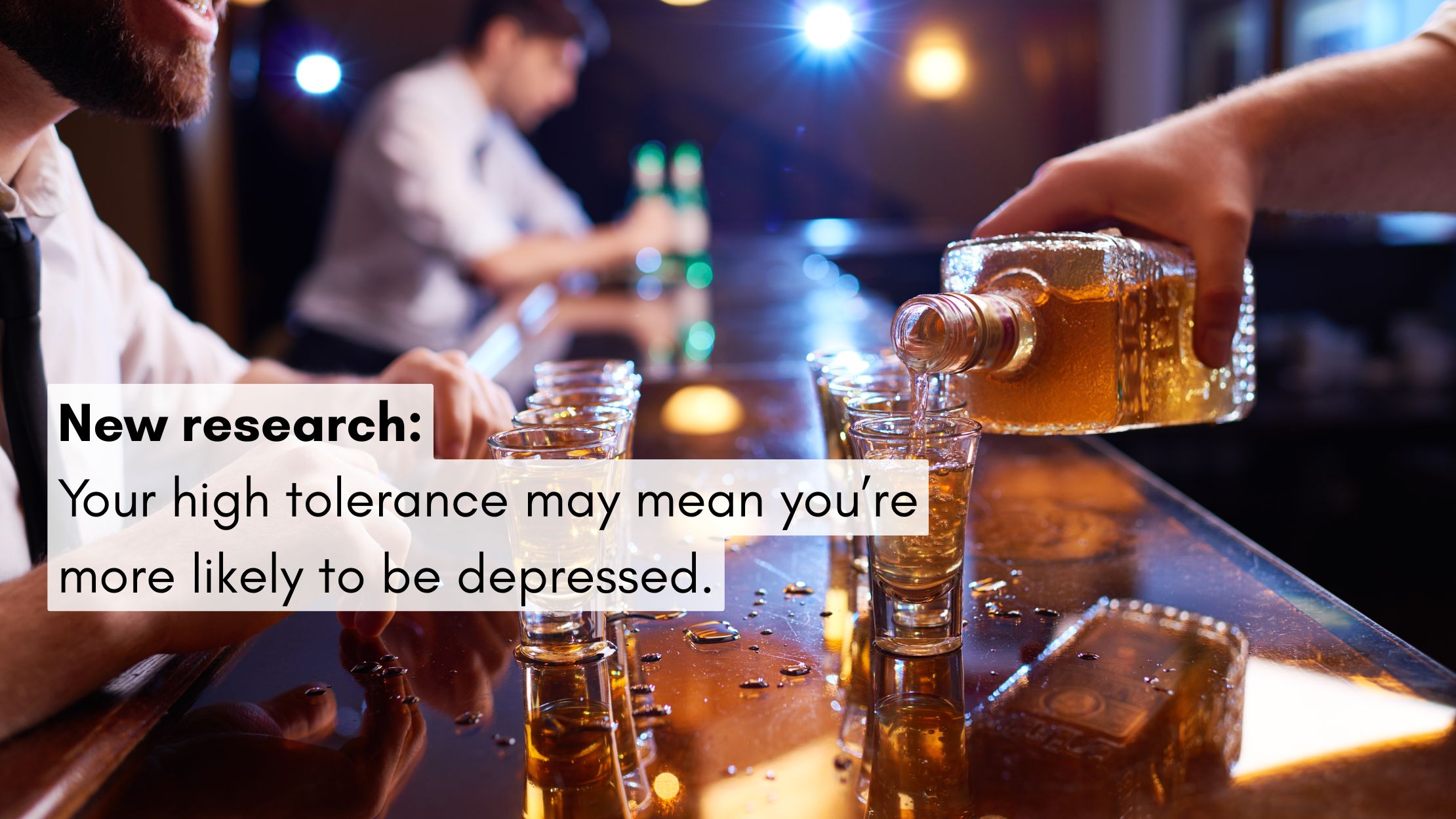
Researchers in rural Japan studied how alcohol use and tolerance relate to mental health among farmworkers. They found that heavy drinking was strongly linked to psychological distress—but only in people with high alcohol tolerance.
“Excessive drinking was significantly associated with psychological distress in participants with alcohol tolerance.”
The researchers wanted to see if alcohol consumption and tolerance were connected to mental health in farmworkers, a group under a lot of stress and often overlooked in public health studies.
The idea was simple: alcohol might be used to cope, but it could also worsen mental distress. By looking at alcohol tolerance (how well the body processes alcohol), they could test if the risks were different for different people. For example, in East Asian populations, some people flush after drinking because of a genetic trait that makes it harder for them to metabolize alcohol.
Those who don’t flush often drink more, since they don’t feel the immediate discomfort—raising the question of whether their mental health takes a bigger hit.
Excessive drinking and poor mental health went hand in hand, but only for those with high alcohol tolerance. For those who flushed and drank less, the link wasn’t significant. This means that the people who can “hold their liquor” might actually face greater hidden risks.
If you drink heavily and rarely feel the short-term side effects, you may be at greater risk of mental distress. Cutting back could be especially protective for people with high tolerance.
For anyone trying to live more intentionally—whether that’s saying no to another round or using an app like I’m Good to track drinking—this study suggests that less alcohol could also mean a clearer, calmer mind.
Yes, and here’s why. Alcohol is a depressant—it slows down the brain and body. In the short term, a drink might make you feel more relaxed, but that effect is like a band-aid: temporary and surface-level. Once your body processes the alcohol, stress hormones like cortisol actually rise, which can make anxiety worse later. This is one reason people often wake up feeling jittery or low the day after drinking.
The study from Japan backs this up: heavy drinkers were much more likely to report serious psychological distress. It doesn’t prove that drinking caused the distress, but it strongly suggests the two are linked. When you drink less, you remove one of those stress-amplifying factors. Many people notice better sleep, fewer mood swings, and improved ability to handle everyday pressures.
It comes down to tolerance. People with high alcohol tolerance don’t feel drunk as quickly, which sounds like an advantage, but it actually makes it easier to drink more without realizing the toll it’s taking. Over time, this heavier drinking can weigh on the brain, increasing the risk of depression, anxiety, and other mental health struggles.
The Japanese study showed that among people with high tolerance, heavy drinkers were 29 times more likely to have serious distress. That’s huge. These “strong drinkers” often fly under the radar because they don’t show outward signs of drunkenness. But their mental health may be quietly unraveling. It’s like having a car that hides all the warning lights—you keep driving until something breaks.
Not exactly. People who flush when they drink (common among East Asians) tend to drink less because it’s uncomfortable, which lowers their risk of heavy drinking problems. In this study, flushers didn’t show a significant link between heavy drinking and distress. But that doesn’t mean alcohol is safe for them.
Flushing happens because of a genetic difference in alcohol metabolism. It makes your body build up acetaldehyde, a toxic byproduct of alcohol, much more quickly. That’s why you turn red and feel bad after drinking. While this trait might protect against drinking too much, it carries other risks, like higher chances of certain cancers. And even smaller amounts of alcohol can still mess with sleep, mood regulation, and energy. So flushing is not a free pass—just a different risk profile.
The researchers used the AUDIT test, which is a standard way of measuring risky drinking. A score of 15 or higher was considered “excessive.” That usually means drinking very often, having multiple drinks in one sitting, or binge drinking.
To put it in everyday terms, that could look like regularly downing five or more drinks on a night out, or drinking heavily several times a week. It’s not about one glass of wine with dinner—it’s about frequent patterns of heavy intake. This is the level of drinking most strongly linked to mental distress, poor sleep, and long-term health problems.
Yes—and here’s why. Behavior change is hard when it’s abstract. Apps like I’m Good make the invisible visible: they let you see exactly how much you’re drinking, how often, and how it lines up with how you feel mentally and physically. That feedback loop is powerful.
Studies on behavior change show that tracking habits, setting goals, and getting little nudges of encouragement all make it much easier to stick with healthier choices. Even small reductions in drinking—like cutting back a couple of drinks a week—can improve sleep, focus, and emotional balance. Over time, that builds momentum.
So while no app can do the work for you, using one creates awareness, structure, and motivation. And when it comes to drinking less, those three things can make the difference between “trying” and actually changing.
Want to give I'm Good a try? Sign up for the beta today!
Original Source Material: Moderating role of alcohol tolerance in the association between excessive drinking and psychological distress: a cross-sectional study among agricultural workers in Japan